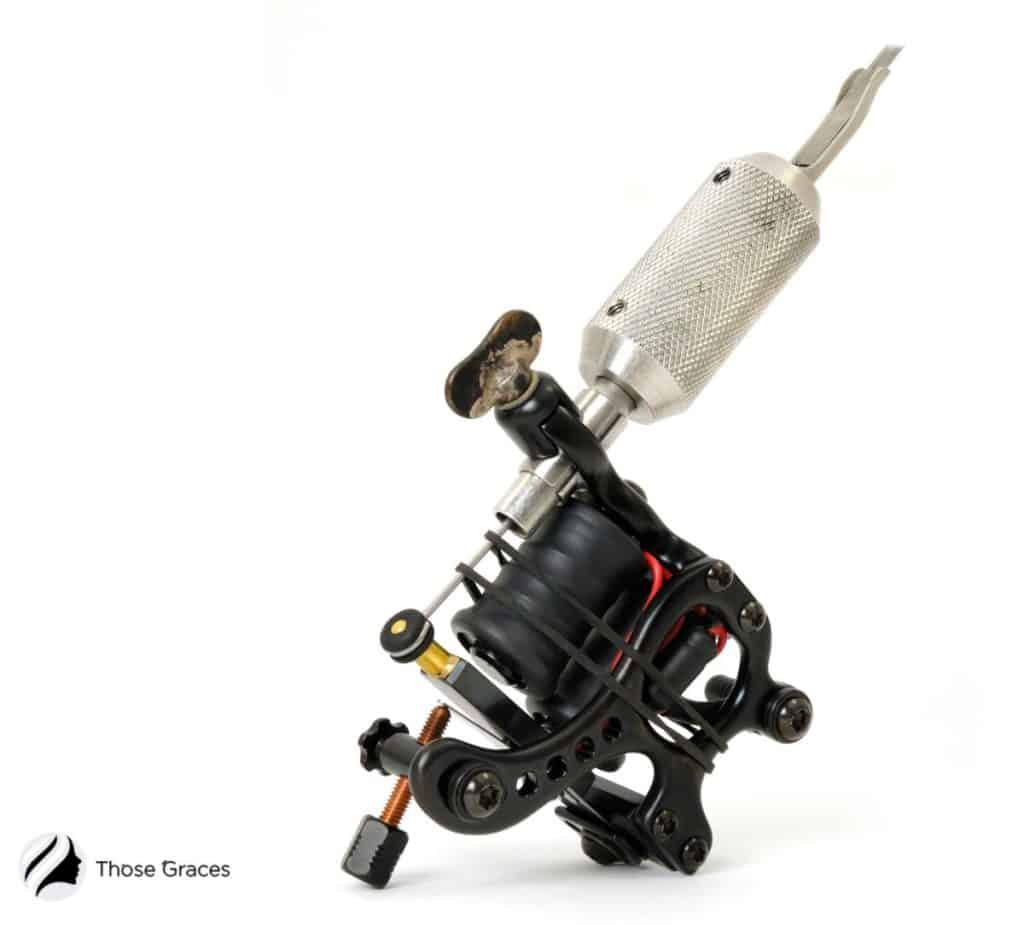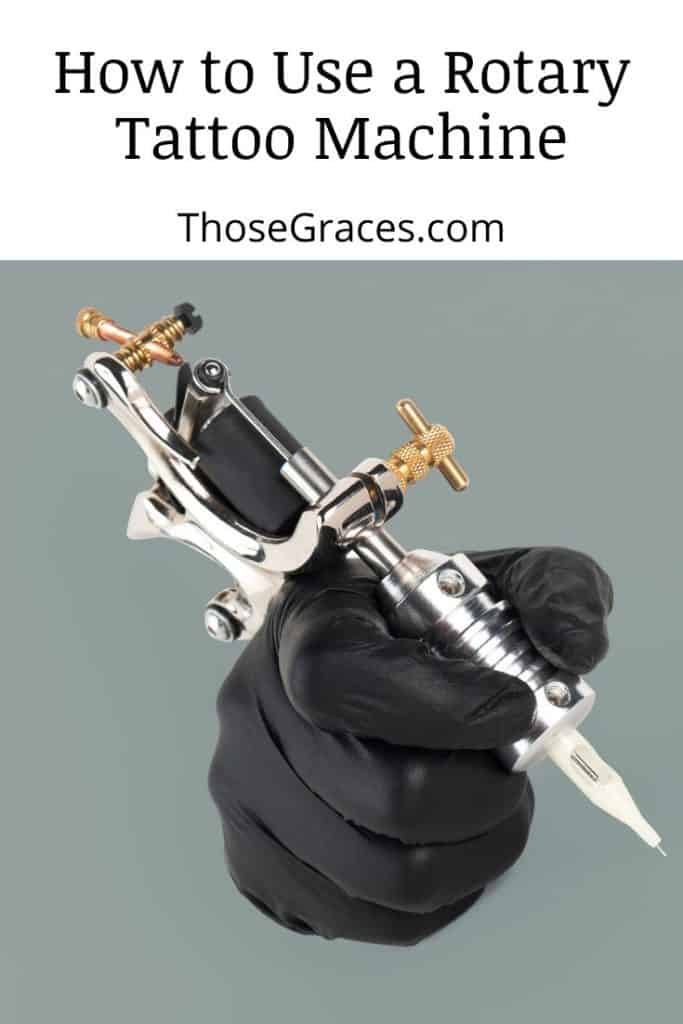The rotary tattoo machine revolutionized the world of tattooing, and even though the coil tattoo machine has largely replaced it, it remains an important part of the art.
Using a rotary tattoo machine is fairly simple. You need to set it up correctly and ensure it is sterile, connect everything, and then you are good to go with your pen.
Everything you need to know is right here, down to the pros and cons of using this brilliant machine and whether it still has a place in modern tattoo parlors.
Table of Contents
Key Takeaways:
- How to use a rotary tattoo machine includes having the right materials, understanding how they work, and practicing.
- A rotary tattoo machine uses an electric motor to turn needles up and down quickly, which creates a vibration on the skin.
- Rotary machines are easier to control than coil machines because of their speed and consistency.
CHECK: Top Tattoo Machine Brands
What’s a Rotary Tattoo Machine?
A rotary tattoo machine is a MOTORIZED tool that applies ink to the skin. It uses an oscillating needle, which pierces the top layer of the skin and deposits ink into the dermal layer.

It looks like a pen with a grip that holds up to four needles at once, letting you create INTRICATE designs quickly and easily.
It was created by Samuel F. O’Reilly in 1891 and was the FIRST motorized machine used in tattooing. [1]
It changed the tattoo industry permanently, even though it was later replaced by the coil machine.
How to Setup a Rotary Tattoo Machine
Before you can use your rotary tattoo machine, you’re going to need to set it up so that it’s ready for use. Thankfully, this is pretty SIMPLE, and you only need to follow the steps below.
- The first step when setting up a rotary tattoo machine is to ensure it is sterile by wiping down the machine with rubbing alcohol and ensuring all surfaces are free from dirt and debris.
- Once that’s done, you can connect the power supply to the armature bar using the clip cord, which will be connected to the coils.
- Attach the needle cartridge, which is the part that holds up to FOUR needles and will be connected to an adjustable spring-loaded bar to control how much pressure is applied.
- Finally, ensure all the connections are secure, especially the contact screw, and the motor is running smoothly.
Steps for How to Use a Rotary Tattoo Machine
Once the machine is set up and ready to go, it’s time to START tattooing. Here’s what you need to do in order to get started:
- Turn on the power supply and adjust the voltage according to your preference.
- Attach the foot pedal, which will control the speed of the machine.
- Place the pen on the skin, making sure to apply even pressure as you go.
- Move the machine in a continuous motion over the skin, using your free hand to adjust the needle depth as needed.
- Make sure to wipe away excess ink and blood regularly for optimal results.
- When you’re done, turn the power supply off and clean up your workstation.
Pro Tip: Remember to always use a clean tattoo needle, as any good tattoo artist will have excellent hygiene practices.
How to Care for a Rotary Tattoo Machine
To keep your rotary tattoo machine running in tip-top shape, you need to take good care of it.
This means cleaning and STERILIZING the machine regularly, lubricating all moving parts, and replacing worn or damaged needles when needed.
You also need to make sure you use a RELIABLE power supply that’s designed for tattoo machines and check the voltage regularly to ensure it’s running correctly.
Overall, taking care of your rotary tattoo machine is essential in order to keep it running efficiently and SAFELY for years to come.
Pro Tip: Your rotary tattoo machine and tattoo needles should be sterilized before every new customer, preventing cross-contamination and bacterial infections.
What are the Pros and Cons of a Rotary Tattoo Machine?
A rotary tattoo machine has advantages and disadvantages. When it comes to the pros, these machines are incredibly easy to use.
They’re also highly EFFICIENT, allowing you to complete a full-body tattoo in just a few hours.
Since they don’t generate EXCESSIVE HEAT or noise as coil machines do, they’re often considered the more comfortable and convenient option.
On the other hand, rotary machines require FREQUENT maintenance to keep them running properly, and they also tend to be more traumatic on the skin than other types of tattoo machines.
Here is a video one tattoo artist created to explain why he prefers using a rotary tattoo machine.
Pro Tip: Most rotary machines can be quite expensive, which means they aren’t always the most cost-effective choice.
Is a Rotary Tattoo Machine Still Used in Modern Tattoo Parlors?
The answer is yes. Rotary tattoo machines are still used in modern tattoo parlors, although the coil machine has become more popular due to its INCREASED power, reliability, and efficiency.
Rotary machines are still a great option for those who want an easy-to-use machine.
They’re also well-suited for those who are just starting out in the world of tattooing, as they provide a good introduction to the basics.
READ MORE: Coil Tattoo Machine vs Rotary
Frequently Asked Questions
Is a Rotary or Coil Tattoo Machine Better for a Beginner?
If you want a machine that can handle larger, more intricate tattoos, then a coil machine may be the better choice.
Can I Use Any Needle Cartridge with a Rotary Tattoo Machine?
Using the wrong cartridge could damage your machine and put both you and your client at risk.
Can You Line with a Rotary Tattoo Machine?
This is why tattoo artists usually use coil machines.
What Is A Cam Wheel?
This helps regulate the speed at which the needle penetrates the skin.
Conclusion
Now that you know HOW to use a rotary tattoo machine and all the pros and cons associated with it, you’re well on your way to becoming a professional tattoo artist.
They are great for beginners and will help you become a master of your craft.
Just remember to always take good care of your machine, use the RIGHT needle cartridges, and practice regularly in order to perfect your skills.
We hope this guide has helped clear a few things up for you.

Resources:
1. The first practical electric motor — in a tattoo gun? | SPARK Museum of Electrical Invention [Internet]. www.sparkmuseum.org. Available from: https://www.sparkmuseum.org/the-first-practical-electric-motor-in-a-tattoo-gun/


